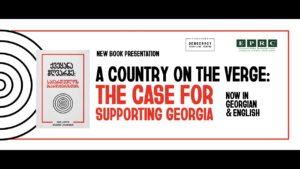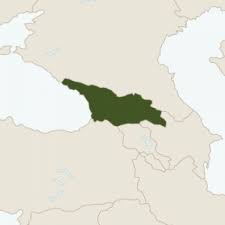In Central and Eastern Europe, experience shows that democratization has better chances where linkages to the West are strong and ideological alternatives, such as Russian-style “managed democracy” or authoritarianism, are weak, argues Natalie Sabanadze, a Cyrus Vance visiting professor in international relations at Mount Holyoke College and a former Georgian ambassador to the European Union.
Therefore, the EU should respond to the democratic backsliding in Georgia more quickly and effectively by encouraging a substantive democratization based on power sharing and direct participation, she writes for the European Democracy Hub, an initiative of Carnegie Europe and the European Partnership for Democracy:
 The EU has a unique power to nudge the country away from its majoritarian governance and zero-sum political culture. EU conditionality will work best when it is concrete, context-specific, and coincides with public expectations. Georgia will benefit from a turn to a more equitable distribution of political gains and losses, as well as from the strengthening of institutional safeguards that buttress democracy against the personalization of politics.
The EU has a unique power to nudge the country away from its majoritarian governance and zero-sum political culture. EU conditionality will work best when it is concrete, context-specific, and coincides with public expectations. Georgia will benefit from a turn to a more equitable distribution of political gains and losses, as well as from the strengthening of institutional safeguards that buttress democracy against the personalization of politics.
The Georgian case shows yet again, that to be and to remain a successful liberal democracy, it is not sufficient to have only public support for such values and institutions, says Ghia Nodia (above), a Georgian political scientist, professor of Ilia State University in Tbilisi, Georgia, and chairman of the Caucasus Institute for Peace, Democracy and Development.
 Society also needs to have the skills to properly organize itself for pursuing appropriate political goals. In democracies, this job is done by robust and stable political parties and civil associations, he writes for American Purpose:
Society also needs to have the skills to properly organize itself for pursuing appropriate political goals. In democracies, this job is done by robust and stable political parties and civil associations, he writes for American Purpose:
Ukraine’s victory in the war with Russia may help change the balance of forces within
Georgia by demonstrating how unwise [Georgia Dream’s de facto leader Bidzina] Ivanishvili’s effectively pro-Russian stance has been. Concerningly, so far, however preposterous the government-promoted conspiracy theories might be, the GD has been fairly skillful in manipulating the fear of war (quite natural for a country that was itself the target of Russian aggression in 2008) and presenting itself as the only political force keeping Georgians out of trouble.

NDI
Russia’s defeat in Ukraine would show how unwarranted Ivanishvili’s master narrative is, adds Nodia, a former Reagan-Fascell fellow and Lipset lecturer at the National Endowment for Democracy (NED). And while this is just one additional reason for Georgian democrats to cheer for Ukraine’s victory, it also shows yet again how important the outcome of the war is for the fate of democracy globally. RTWT
Bidzina Lebanidze, a senior policy analyst at the Georgian Institute of Politics, said that Russia may now be seeking to further drive a wedge between Georgia and the West — putting Tbilisi’s delicate balancing act to the test, Mack Tubridy and Pyotr Kozlov write for The Moscow Times.
“It’s a dilemma for Georgia,” he said. “Russia is a big neighbor and market, and it shares a lot of societal ties with Georgia. It’s always economically beneficial for a small country like Georgia to have a more constructive and diversified relationship with Russia. But there are security risks involved.”
Moreover, Georgian democracy today is a battleground in the war of values between Russia and the West that must be won, Sabanadze adds. RTWT
#Georgia shows that to remain a liberal democracy, public support for values & institutions is not sufficient. Society also needs skills for the pursuit of appropriate political goals, fmr @ThinkDemocracy fellow @Ghia_Nodia writes for @americanpurpose. https://t.co/5L6bGQIaJa
— Democracy Digest (@demdigest) May 17, 2023







